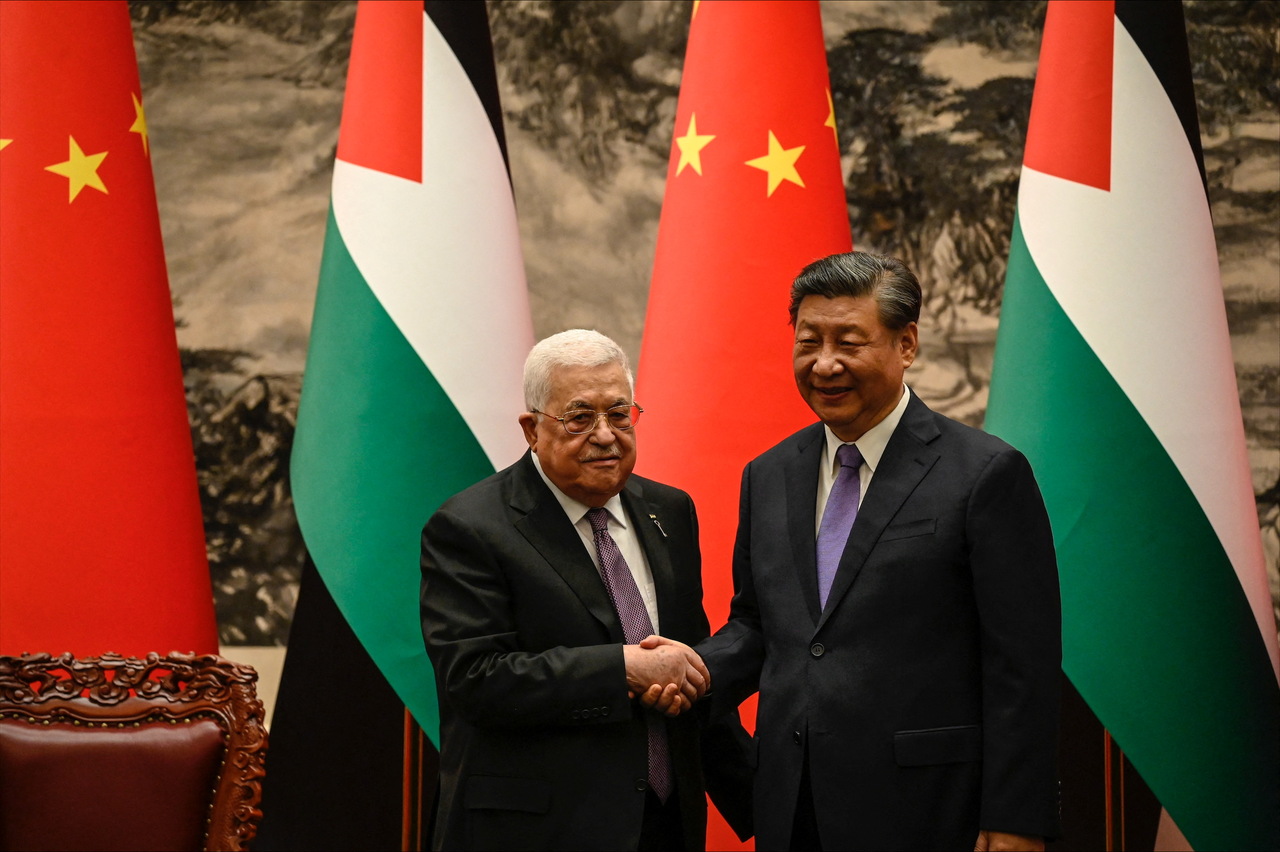China's Support for Palestine Despite Hamas Attack Aims for Mid-East Role
China has not condemned Hamas for its attack on Israel. At the same time, it describes Israel’s response as excessive, emphasising the responsibility of both sides for the escalation of the conflict. This approach could effectively strengthen China’s position in the Middle East and in its global rivalry with the U.S.
 POOL / Reuters / Forum
POOL / Reuters / Forum
What position has China taken on the Hamas attack on Israel?
In the first hours after the attack, the position of the Chinese authorities was expressed by Chinese representative to the UN Security Council, and elaborated on by Foreign Minister Wang Yi on 13 October. China did not condemn the perpetrators of the attack nor explicitly name the aggressor, the same as after Russia’s attack on Ukraine. It also did not name Hamas as the culprit in the massacre of Israeli civilians. The Chinese authorities expressed concern about “all the attacks” on civilians, the deterioration of the humanitarian situation, and the violation of international law without naming who did it. They blame Israel’s policies as responsible for the conflict, including the failure to create a state for the Palestinians, whose fate as a nation China considers threatened. In this context, China has suggested the resumption of Israeli-Palestinian negotiations can be facilitated by, among other things, the planned visit of a special Chinese envoy for the Middle East.
How will China’s policy change its relationship with Israel?
China’s Hamas-friendly stance is unacceptable to the Israelis. It thus ends China’s long-standing policy of balancing intensive contacts with Israel, including cooperation in the technological field, with support for Palestinian aspirations. As recently as June this year, during the visit of Palestinian Authority Chairman Mahmoud Abbas to Beijing, the Chinese authorities stressed that they wanted to be a reliable mediator between Israel and the Palestinians. However, it is now more important for China to criticise the actions of the U.S. and its most important Middle Eastern partner, Israel. In the long term, China’s stance does not mean a complete collapse of cooperation with Israel, but it will reduce opportunities for Chinese companies to engage in Israel’s technology sector or make infrastructure investments in the country.
Will China’s relations with Arab states and Iran change?
China is convinced that the situation created after the Hamas attack on Israel means that relations with the Arab states and Iran must be intensified. Given the U.S. military and political involvement on the side of Israel, it is necessary in China’s view to give political support not only to the Palestinians (and therefore also to Hamas) but also to the states on their side, including Iran or Syria. This includes their political support in a situation of possible regional conflict. Syrian President Bashar Al-Assad was received with honours in Beijing this September, where both sides announced the upgrading of relations to a strategic partnership. Iran has been supported by the Chinese authorities for many years, both through the purchase of energy resources (while avoiding the violation of UN sanctions) and arms sales. Seen as empowering the U.S., China also wants to counter Saudi Arabia’s planned agreement with Israel, postponed for the time being due to the Hamas attack.
How will Israel’s war with Hamas affect China’s foreign policy?
The war has the effect of reducing the priority of stability in China’s Middle East policy, in favour of supporting Arab partners as part of balancing U.S. and Israeli influence. China’s aim becomes to maintain tensions in the region fostering polarisation in the international community and increasing challenges to the U.S. This will also allow China to present itself as an actor that can influence the future of the region.
The situation in the Middle East is now seen by China as another (after its actions in the Indo-Pacific and the war in Ukraine) important element in its rivalry with the United States. China is aware of the importance that an attitude of support for the Palestinians has in the political elites and societies of Muslim countries, including Arab countries such as Saudi Arabia and the UAE. China, together with Russia, whose position on Israel’s war against Hamas is similar to China’s, is using support for the Palestinians as an example of creating a political alternative to the U.S., pointing to its responsibility for many years of destabilisation in the region. China’s involvement in Saudi-Iranian negotiations culminating in an agreement between the two countries in March this year was intended to serve the same purpose.
What is the relevance of China’s position for the EU and EU-China relations?
The approach of China, which is an important economic partner for the countries of the Middle East, is not conducive to stabilisation of the region, and it delays the process of regulating Israel’s relations with the Arab states which would also reduce the likelihood of conflict in the region. It also contradicts the EU’s priorities as set out in the European Council’s communication of 17 October, in which EU states condemned the Hamas attack and advocated Israel’s right to self-defence. The only field for cooperation with China may become the issue of humanitarian aid to Gazans, which is supported by both actors. However, China’s support for Iran, Syria, and, indirectly, Palestinian terrorist organisations may at the same time contribute to maintaining the destabilisation of the region and result, for example, in increased migration pressure to the EU. In this context, as in the case of Russia’s aggression against Ukraine, China stands in opposition to the values and interests of the European Union, and this may hamper their relations ahead of the EU-China summit announced for the end of this year. However, the topic of the possible negative effects of China’s involvement in the Middle East should be included on the agenda of the meeting.





